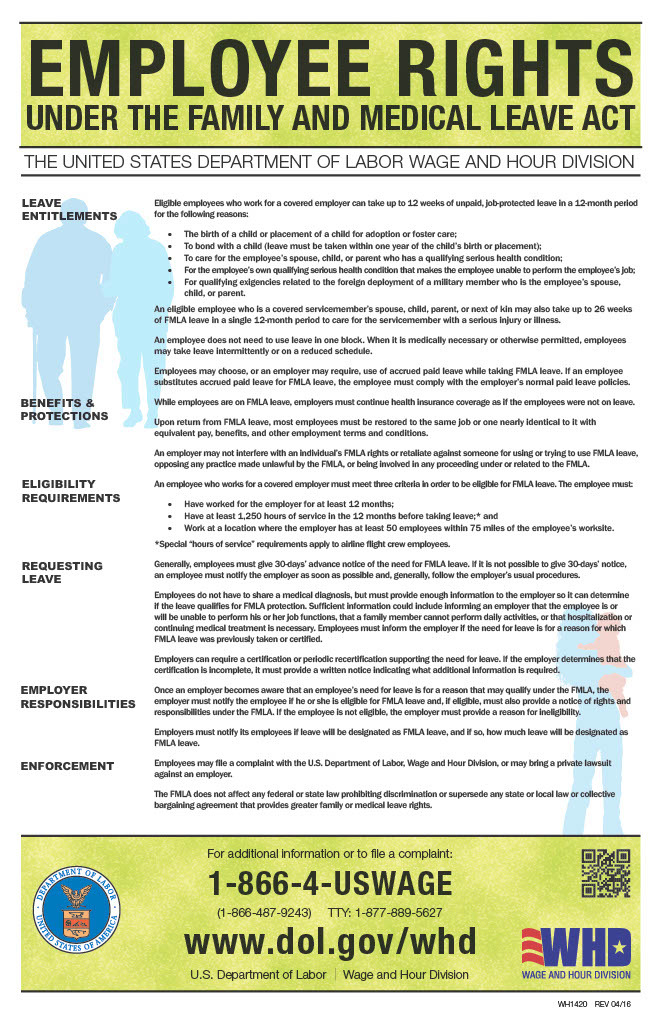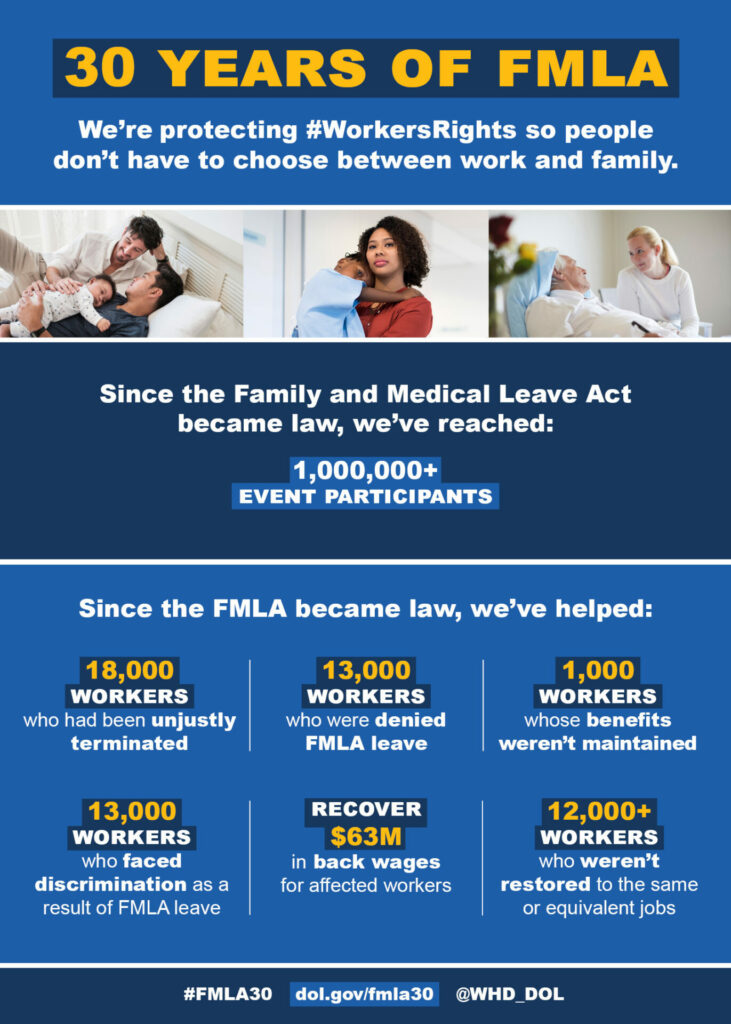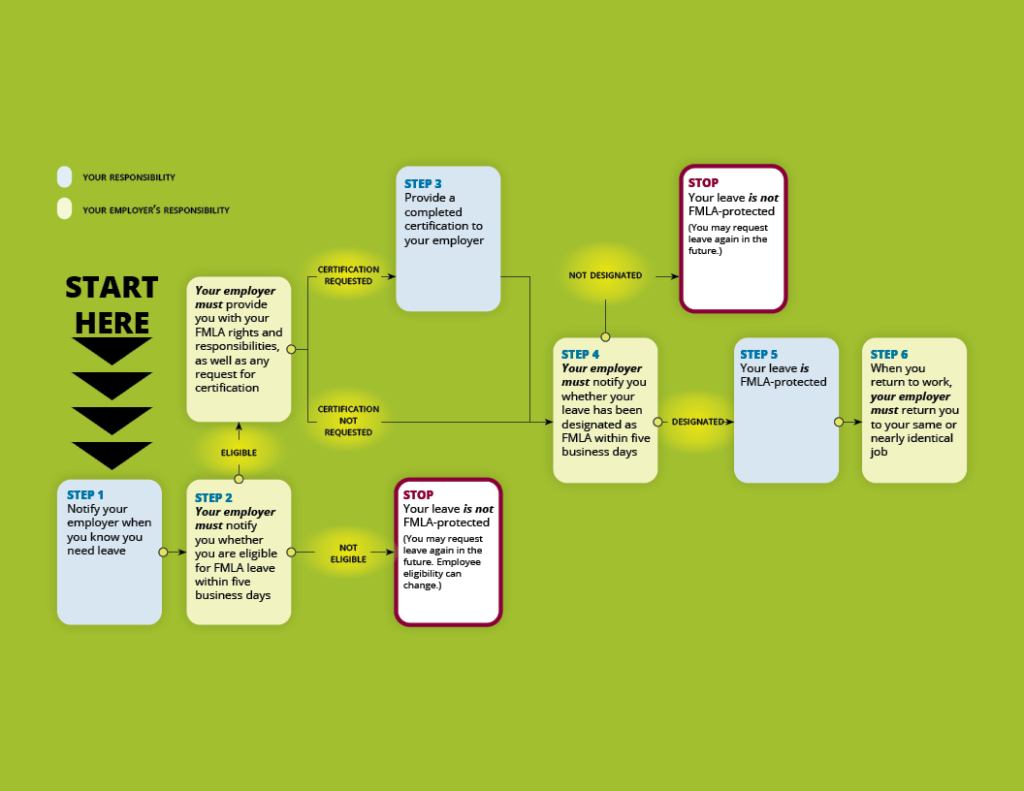
Yes, it is possible to be fired while on intermittent FMLA leave - but an employee cannot be fired for requesting or taking FMLA leave.
An employee cannot be fired for retaliatory reasons for taking or requesting FMLA medical leave. Retaliation occurs when an employee is denied FMLA intermittent leave and faces disciplinary action or when an employee comes back from FMLA medical leave to his or her position but suffers adverse actions because of taking leave.
The FMLA is a federal, nationwide law that provides eligible employees with 12 weeks of unpaid leave per year. Employers cannot discipline an employee for applying or taking medical leave covered by the FMLA.
Eligible employees are entitled to:

FMLA leave is not available to every employee. FMLA eligibility requires the following criteria:
The FMLA is a federal law that sets minimum requirements across the country. But, policies regarding unpaid medical leave may vary from state to state. Some states offer greater options and benefits. Special rules apply to education agencies such as schools that may give more flexibility than other employers. Additionally, there are different requirements for a military caregiver under FMLA.

If you qualify for FMLA medical leave, it provides job-protected leave benefits. This means, when you take FMLA intermittent leave, your job (or an equivalent) must be available to you upon your return.
FMLA was enacted to prevent employers from penalizing employees who needed time off work to tend to a serious medical condition or that of a family member. Your employer has the right to delete the job you had or hire someone to fill your position while you're out on leave. However, the company must restore you to an equivalent job with comparable duties and pay upon your return to work.
To avoid a dispute concerning equivalent work and pay, your employer might hire a temporary worker to perform your job duties while you're away from work.

An equivalent job doesn't necessarily mean the job you return to has the same title as the job you had before FMLA leave. For example, if you are a sales department secretary paid $50,000 a year, your employer may not have been able to continue its departmental operations with the secretarial role vacant throughout your absence. Your employer's ability to hold open your job might be based on business demand and staffing needs.
However, if you're placed in a secretarial position with the marketing department, using the same skill set and paid $50,000 a year, your company will have fulfilled its job-restoration obligation.
There is the possibility of being terminated while on or returning from FMLA. An employee on FMLA leave is not entitled to any more rights than if the employee did not take leave. Employers can terminate employees due to:
An employer with any legitimate, non-discriminatory, and non-retaliatory reason can terminate an employee regardless of their FMLA leave status.
Before an employer can safely terminate an employee for legitimate, non-discriminatory reasons unrelated to the FMLA leave, it is important to comply with the notice requirements under FMLA.
For instance, a covered employer is required to provide notice to employees of their rights and obligations under FMLA by posting notices in a conspicuous place in work areas, including a detailed notice and explanation of FMLA rights in employee handbooks, specifically designating leave as an FMLA leave, informing employees that taking leave will count against their bank of available FMLA leave time.
Under FMLA, employees must also comply with certain notice requirements. For example, an employee must provide 30-days' notice before taking an FMLA-covered leave, or as much notice as is "practicable." If an employee fails to provide timely notice, the leave may be unprotected by FMLA. If all the notice requirements are met, the employee is entitled to a maximum of 12 weeks of leave under FMLA.

Employees fired while on FMLA leave, after asking for leave or in retaliation for taking leave could have a potential lawsuit. That’s because firing them may be:
The FMLA and other leave-related laws do not forbid discharging workers, employers have the right to fire workers for any reason, as long as it’s not an illegal one. Using FMLA intermittent leave as one of the following reasons is an illegal one. So it’s crucial that any discharge decision is backed up with information showing requesting or taking leave was not a factor. The key is understanding where your FMLA responsibilities begin and end.
Employers who need time off for medical reasons but who are not covered by FMLA should discuss alternative forms of leave with their employer. In some cases, employers may grant unpaid time off or permit employment on a reduced schedule basis under certain circumstances.
Sometimes an employee may also use vacation or sick leave as an alternative, if FMLA is not an option, or they may consider taking short-term or long-term disability if it's offered through the employer. Check with your employment lawyer or Human Resources department to learn about your company's leave policies for where the FMLA applies.
Under FMLA, employers cannot use the taking of qualified leave, such as a family members' or their own serious health condition, as a negative factor in any adverse employment actions, including promotion, discipline, layoff, or termination.
If you have faced retaliatory action for taking or requesting FMLA intermittent leave, you will want to contact an experienced attorney at for the privileges of an attorney client relationship in your employment law case.
Our clients become friends, confidants, and repeat customers. Former clients are our best referral source.
Do not be a commodity, find an attorney who treats your legal issue with the care it deserves.

